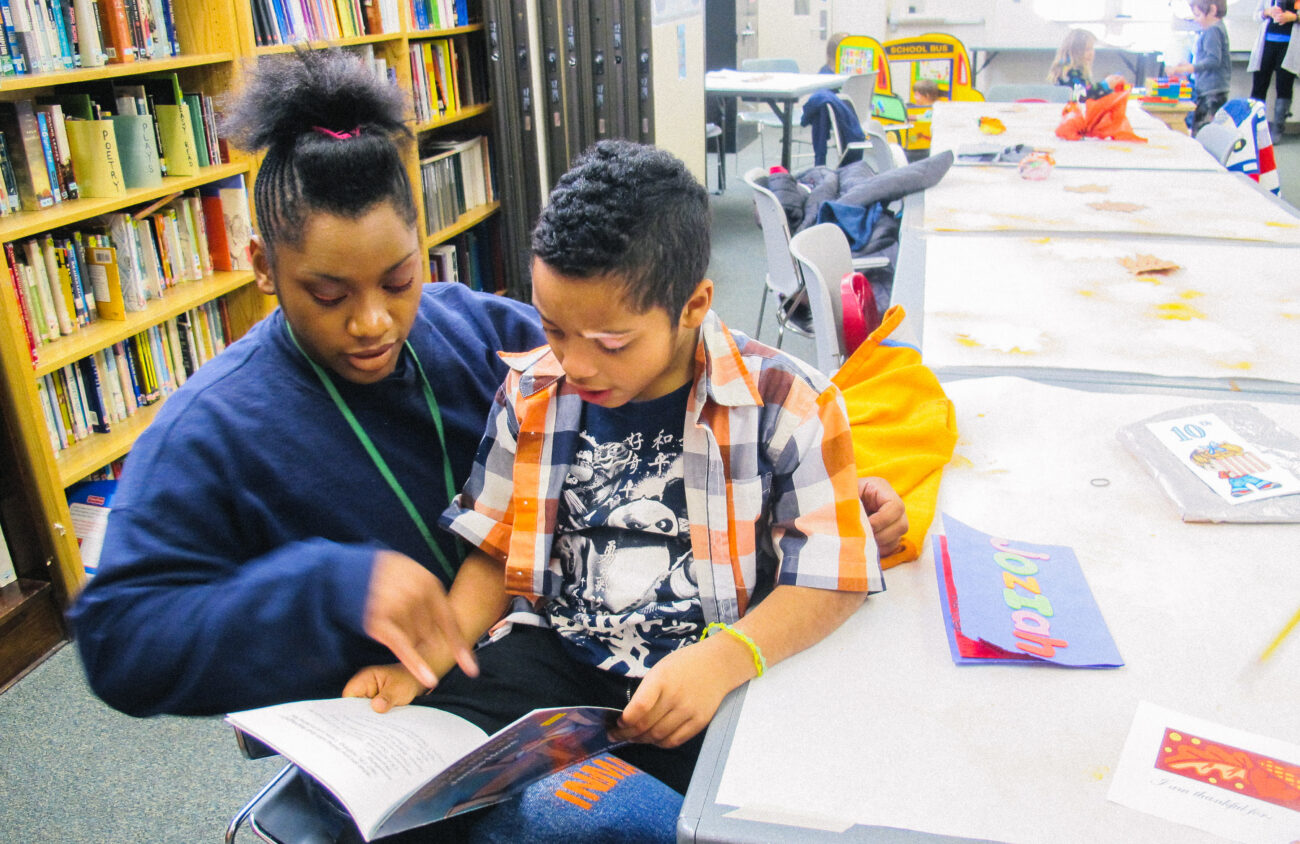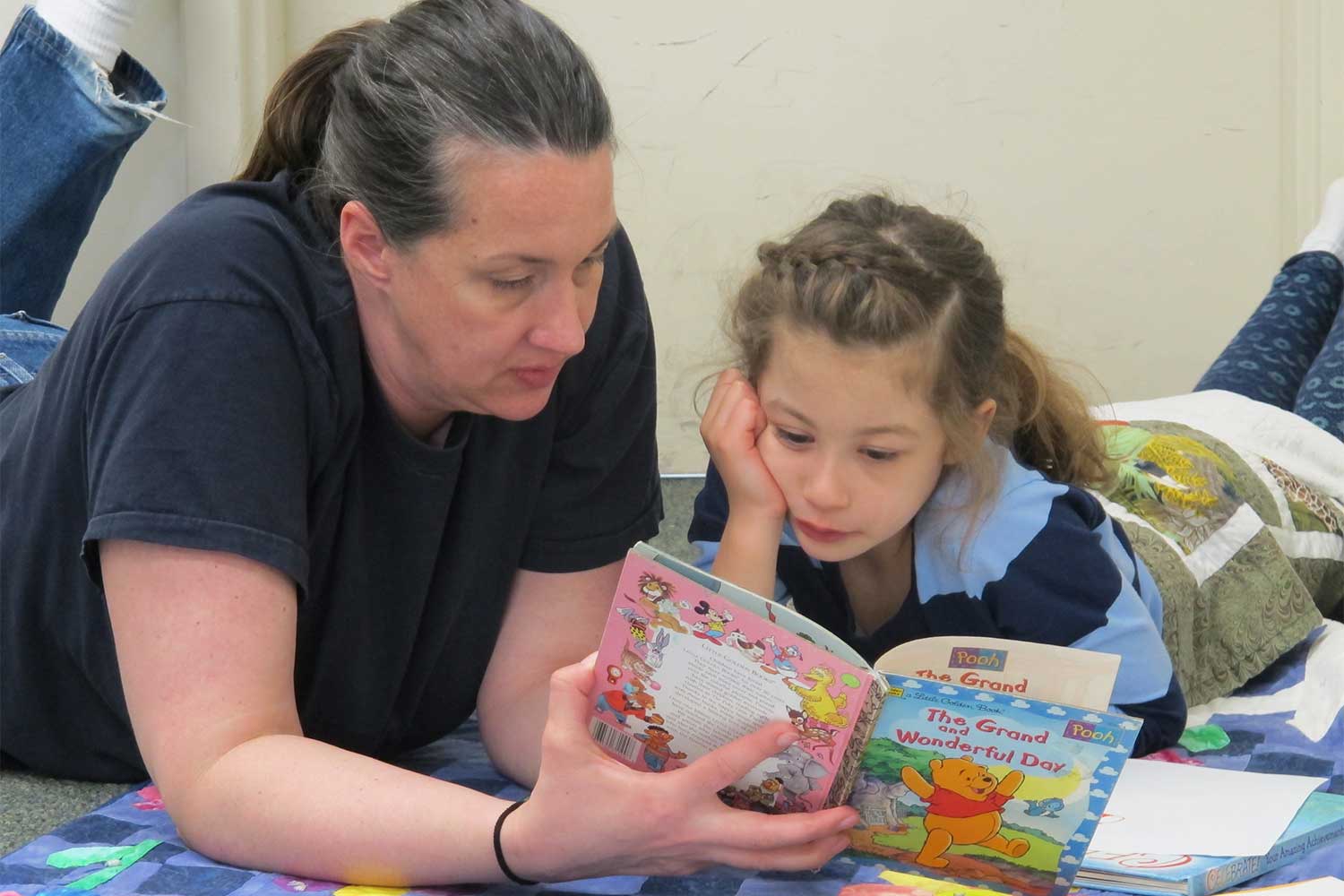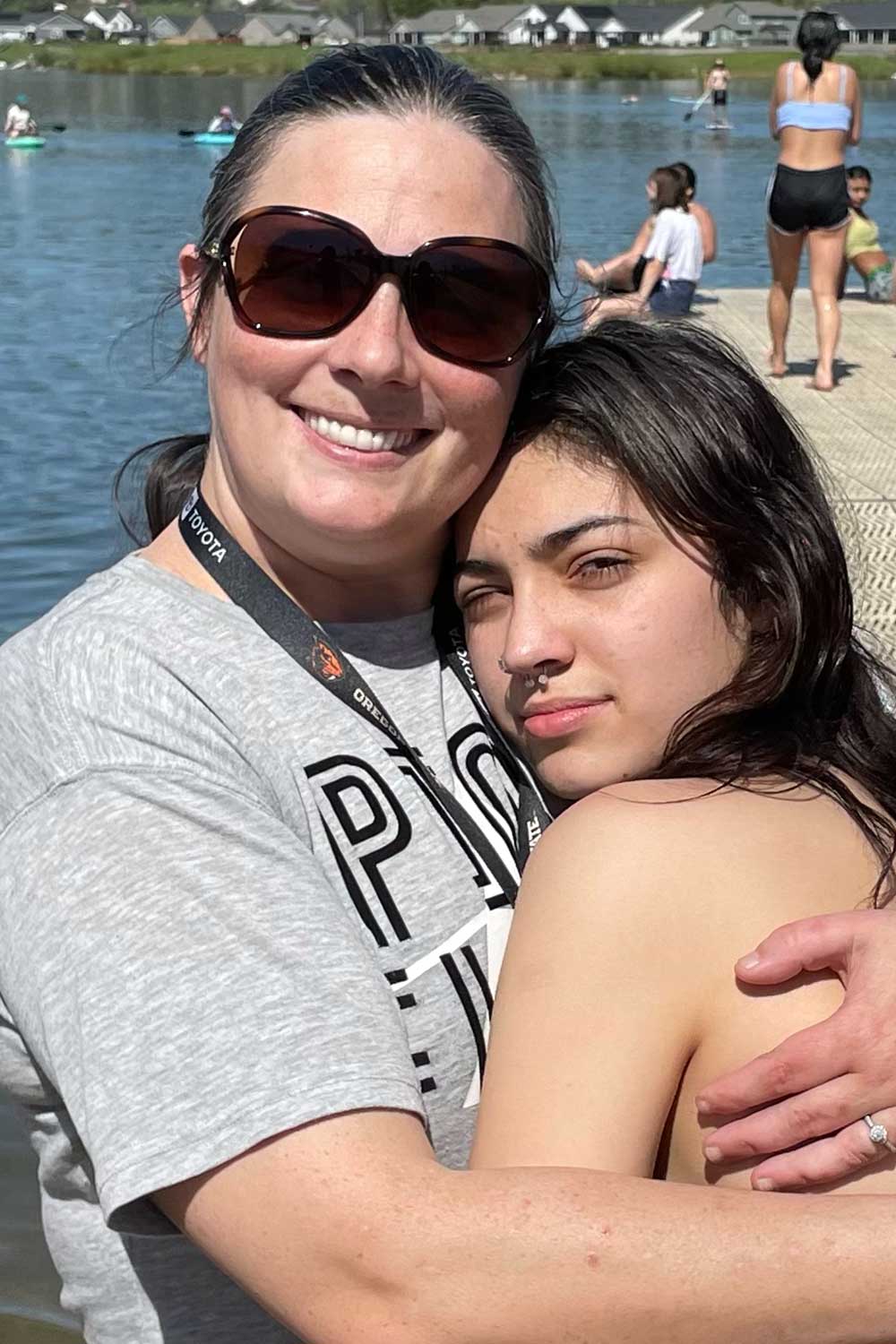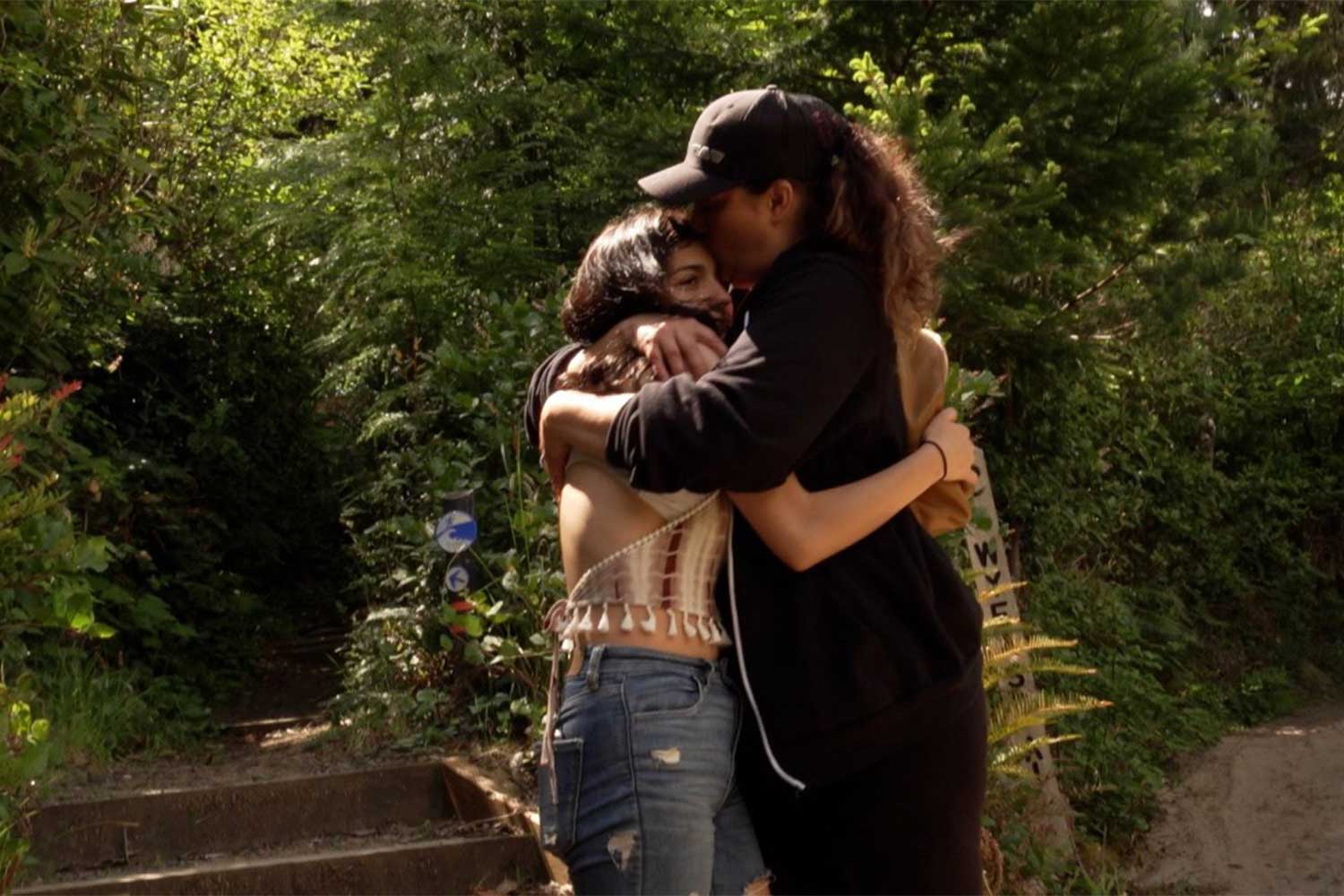“Love invites us home, love says we belong, unconditionally. Love does not demand our perfection, because none of us have that — love sees the effort we have made.”
— adrienne maree brown, writer, activist and emergent strategist
When a mother is incarcerated, an entire constellation collapses. The loss is immeasurable. According to the Prison Policy Initiative, over half of all women in prisons are mothers, as are 80 percent of women in jails. As of 2010, roughly 570,000 women living in the U.S. had been separated from their children by a period of imprisonment. The practice of incarcerating a mother punishes children, families and communities. The collateral harm and consequence is unfathomable and causes a generational crisis as over 1.5 million youth in state custody had an incarcerated parent.
The gendered and racialized system of mass incarceration is the manifestation of massive historic and political forces that are undergirded by the ways we think (or avoid thinking) about prisons and the people and relationships that fill them.
We all participate in this system — that was not by our making— by the stories we consume, we tell and retell that can rationalize an irrational system. As political activist and scholar Angela Davis reminds us, “prisons do not disappear social problems, they disappear human beings” and the network of relationships that make us human.
While the overwhelming majority of people — 71 percent, according to a 2017 American Civil Liberties Union poll — support reducing the prison population, our individual and collective imagination is limited when we ask “How?”
One of the many tragedies upholding the status quo of mass incarceration is the expectation that the people who benefit and believe in this system will dismantle or reform it.
This spring, I participated in the Day of Empathy — a national day of action to humanize and uplift the stories of justice-impacted people. The event was organized by the Portland-based Family Preservation Project (FPP), an extraordinary organization working in and outside of Coffee Creek Correctional Facility in Wilsonville, Oregon. According to the founder and director Jessica Katz, FPP utilizes a holistic, family-centered approach to work alongside women becoming deeply rooted in their identities as mothers while providing direct services to their children. The throughline in every aspect of their work is to change the stories women in prison are told about their worth, value and potential.
That night, children, mothers and grandmothers took to the stage to celebrate and share their stories. The multigenerational presence and impact of incarceration was made clear as more than 80 percent of the speakers had direct experience with the criminal legal system. Nova Sweet, an FPP alum, addressed the audience by inviting us to recognize the “people most harmed by our current system are uniquely qualified to create and champion the solutions that will begin to transform it.”
In the past year, I have met with several alumni of FPP who, upon release and with peer-support, have earned their bachelors degrees, developed programs to support other mothers and are working to build opportunities they did not have.
Enlarge
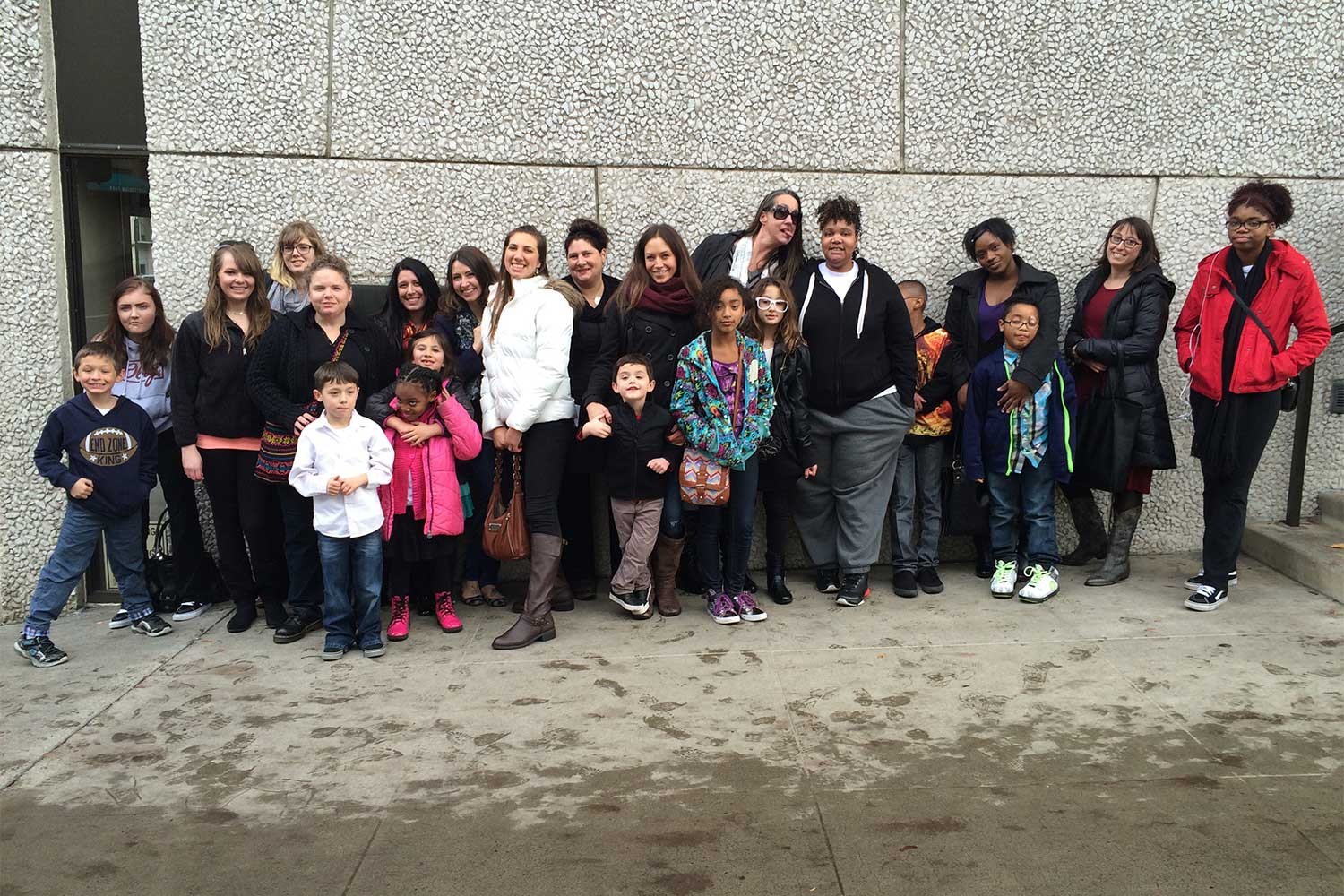
Transforming Walls to Bridges: The Family Preservation Project
Founded in 2014, the Family Preservation Project is part of the YWCA of Greater Portland — one of the oldest and largest women’s organizations in the nation. FPP works to address every level of structural harm. At Coffee Creek, incarcerated mothers face the immense difficulty of nurturing parental bonds while separated from their children by the walls of the prison.
On Mother’s Day, we celebrate unconditional love, tenacity, sacrifice, limitless forms of support, advocacy, love and strength, synonymous with the archetype of mothering. These fundamental desires for protection and care do not evaporate when a mom is sent away to prison. The Family Preservation Project fills the gaps left behind in a mom’s absence by providing wrap-around support to the entire family system that is non-judgmental while working to reduce the collateral consequences of incarceration on children.
FPP has impacted the lives of thousands of Oregon mothers and children, providing services to help incarcerated women and their children overcome cycles of poverty, trauma and intergenerational involvement in the criminal legal system.
FPP participants have also helped advocate for policies to help mitigate the negative impacts on children of incarcerated parents, including the Bill of Rights for Children of Incarcerated Parents (SB 241, which was signed into law in 2017). Oregon is the only state in the country to have such a bill. FPP worked with the Bill of Rights for Children stakeholders to make lasting improvements to the Department of Corrections visitation rules, and is in the process of gaining legislative support for the creation of a doula program at Coffee Creek Correctional Facility.
I have heard that all organizing is a form of science fiction, of creating worlds, identities and possibilities into existence. The Family Preservation Program is a one-of-a-kind organization engaging in transformative work. Rooted in a dignity-centered ethos, FPP addresses needs that the criminal legal system cannot while generating the possibilities that can be. One of the many things that sets FPP apart is the organization is guided and advised by those with direct experience. As Sweet said, those most impacted by a problem are the most well suited to transform it.
Telling a new story
“The universe,” said the radical American poet Muriel Rukeyser, “is made of stories, not atoms.” We are made up of stories we have been told and retell. Inside of prisons live thousands of stories, FPP’s Katz says. “These are human stories, tragic stories, hilarious stories. Stories of violence and chaos, emptiness and longing — stories of bad choices of no choices.”
As an organization, FPP is fundamentally about re-writing the entrenched stories of brokenness, shame and personal accountability that live inside mothers who are imprisoned. These, Katz says, are the most troubling stories. For these stories about personal brokenness do the work to rationalize and justify prisons for everyone. That story, she says, provides a somewhat cohesive narrative or at least a story that people can live with.
For the past 18 years, I have had the pleasure of teaching sociology courses at Lane Community College — in several of those classes we talk about prisons. The opportunity to engage in dialogue about prisons, and the people relegated to cages inside of them, is revelatory. The vast majority of people maintain strong views about incarceration, shaped by political rhetoric, true crime shows and popular culture, yet have never talked to someone impacted by the carceral system. The stories we live in can either nourish or undermine our imagination and sense of possibility.
By recognizing the inherent dignity and worth of every mother, regardless of her circumstances, we can work together to destigmatize incarceration and create a more just and compassionate society instead.
This Mother’s Day, let us celebrate the unwavering love and determination of incarcerated mothers who, with the support of organizations like FPP, overcome incredible odds to maintain their sacred bond with their children. In doing so, we reimagine a future free from the trauma of forced separation where families can thrive and create the world we all deserve.
The funding for this program expires July 1. House Bill 2731, currently in the Joint Committee On Ways and Means, will renew funding and offer the program greater sustainability. Please get involved by going to EugeneWeekly.com to watch two short documentaries, Mothering Inside, which follows the women and children of the Family Preservation Project (FPP), and Brian Lindstrom’s Like a Shield, featuring children who have participated in the Family Preservation Project. You can also send a letter supporting FPP to Letters@EugeneWeekly.com.
